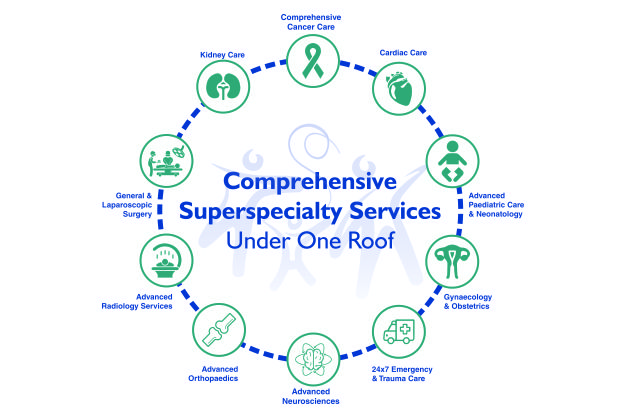
DATE : 06/12/2024
AUTHOR : AIMS Hospital
Aging often comes with memory loss, but when it begins to interfere with daily tasks, it could signal a more serious issue such as Alzheimer's disease, dementia, or other cognitive impairments. These conditions affect memory, thinking, reasoning, and behavior. With the rising prevalence of Alzheimer's and related dementias, neurological care for memory loss plays a crucial role in diagnosis and management. This specialized care not only addresses the condition but also focuses on enhancing the quality of life for patients and their families. By emphasizing the importance of neurological care for memory loss, patients can benefit from early intervention and tailored treatments to better manage these challenges.
Understanding Alzheimer and Dementia
Dementia is a general term that would encompass a particular set of cognitive experiences, including remembering, using language, and figuring things out. Alzheimer's disease is the most distinguished and is a dementia that takes up from 60 to 80 percent of all dementia cases since it is the most progressive neurological disease due to abnormal deposits of proteins, such as amyloid plaques and tau tangles in the brain. These specific changes interfere in communication of the neurons and thereafter leads to the death of cells.
Other key symptoms include but are not limited to:
- Forgetfulness that disrupts daily activities.
- Difficulty in planning or solving problems.
- Problems with visual and spatial relationship understanding.
- Withdrawal from social interaction or activities.
- Change in mood and personality.
An early diagnosis would serve as a portend towards managing the condition effectively and delaying the progress of the disease.
Neurology's Role in Diagnosis
Neurologists deal exclusively with the nervous system and are thus the focal point in the diagnosis of Alzheimer's and dementia. Diagnosis usually involves:
1. Detailed Medical History: Gathering information about symptoms, family history, and overall health.
2. Cognitive Tests: Assessing memory attention language reasoning Executive functions will be assessed Richardson's test.
3. Brain Imaging: Using advanced tools like MRI and CT scans to identify changes in brain structure or rule out other conditions like strokes or tumours.
4. Biomarker Tests: Analysing cerebrospinal fluid or blood for specific proteins linked to Alzheimer’s.
Early diagnosis enables patients and caregivers to access resources and interventions to manage the disease effectively.
Management with Neurological Interventions
Alzheimer's or dementias have no cure. While neurology focuses on treatment and methods to slow the disease progression and lessen symptoms, it's mostly about treating the condition.
Key interventions include:
Medications: Drugs like cholinesterase inhibitors, such as donepezil, and NMDA receptor antagonists, such as memantine, would alleviate the symptoms of poor memory and reduced cognition in patients with the condition.
Non-pharmaceutical therapies: Other important non-pharmaceutical therapies include cognitive training, physical exercise, and social engagement and are successful therefore for a patient toward the maintenance of mental function and emotional well-being.
Lifestyle Modifications: Usually, neurologists prescribe lifestyle changes about a healthy brain diet, exercise regularly, and the management of stress for a patient.
Care for the caretaker: Neurologists also give guidance about resources and support for caring in both emotional and physical aspects, apart from the caregiver advice.
Importance of Treatment by Many Disciplines
The multidisciplinary team consists of neurologists, psychologists, occupational therapists, and social workers. This is to cater for the entire biopsychosocial needs of an individual patient. Neurologists are also responsible for a specific follow-up, which is routine, to modify the care as per changing needs of treatment.
Conclusion
Alzheimer’s and dementia present significant challenges, but timely diagnosis and expert neurological care can make a substantial difference in managing these conditions. At AIMS Hospital, the Neurology Department is dedicated to providing comprehensive and compassionate care for patients with memory loss. With cutting-edge diagnostic tools and personalized treatment plans, AIMS Hospital strives to enhance the quality of life for patients and their families, making the journey with Alzheimer’s and dementia more manageable.
ABOUT US
About AIMSDirector's Message
Vision & Mission
Accreditations
Awards & Accolades
Our Network
Phone Directory
Designed by Web Creations 2022. All rights reserved.










